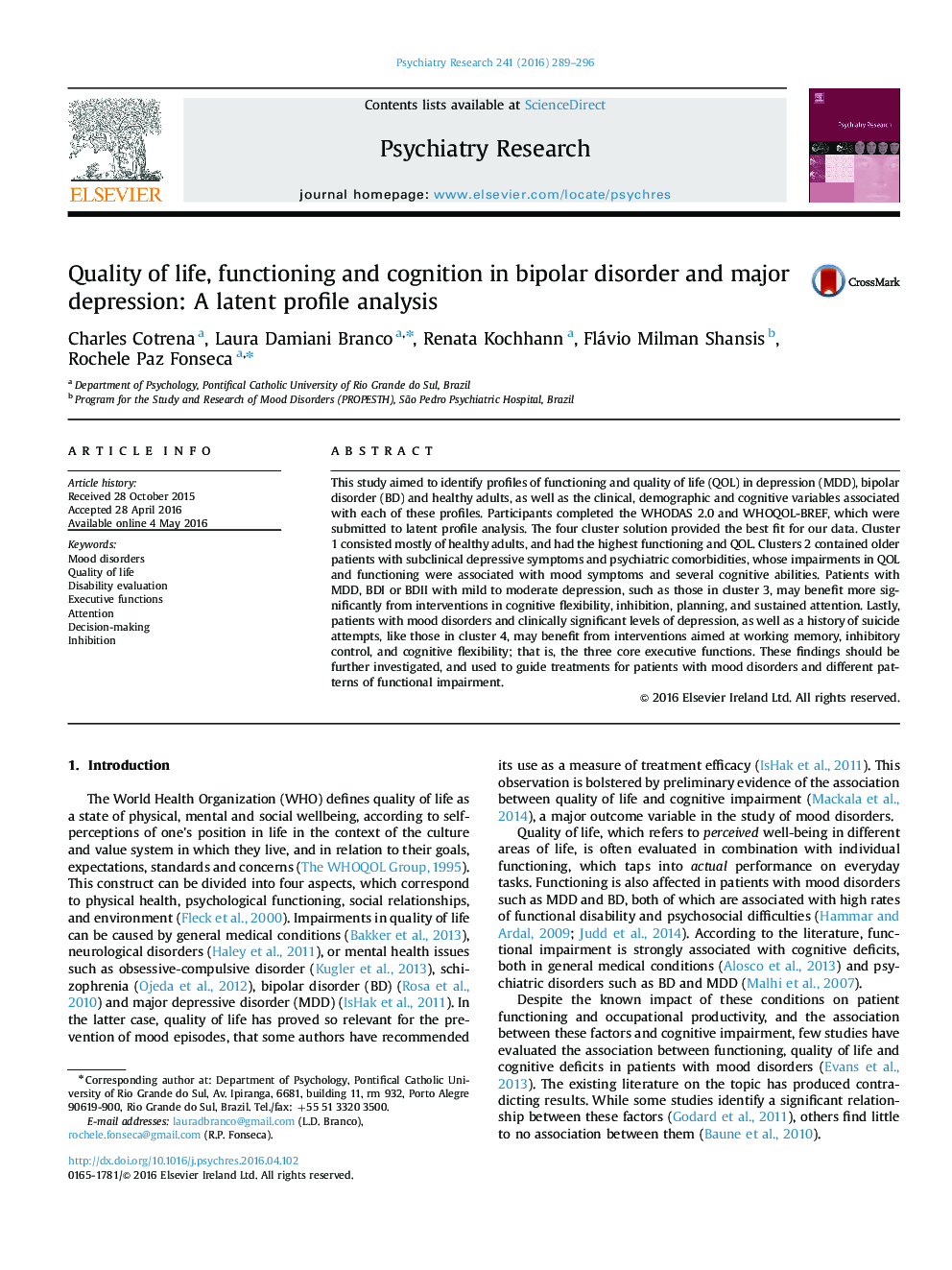| Article ID | Journal | Published Year | Pages | File Type |
|---|---|---|---|---|
| 6813192 | Psychiatry Research | 2016 | 8 Pages |
Abstract
This study aimed to identify profiles of functioning and quality of life (QOL) in depression (MDD), bipolar disorder (BD) and healthy adults, as well as the clinical, demographic and cognitive variables associated with each of these profiles. Participants completed the WHODAS 2.0 and WHOQOL-BREF, which were submitted to latent profile analysis. The four cluster solution provided the best fit for our data. Cluster 1 consisted mostly of healthy adults, and had the highest functioning and QOL. Clusters 2 contained older patients with subclinical depressive symptoms and psychiatric comorbidities, whose impairments in QOL and functioning were associated with mood symptoms and several cognitive abilities. Patients with MDD, BDI or BDII with mild to moderate depression, such as those in cluster 3, may benefit more significantly from interventions in cognitive flexibility, inhibition, planning, and sustained attention. Lastly, patients with mood disorders and clinically significant levels of depression, as well as a history of suicide attempts, like those in cluster 4, may benefit from interventions aimed at working memory, inhibitory control, and cognitive flexibility; that is, the three core executive functions. These findings should be further investigated, and used to guide treatments for patients with mood disorders and different patterns of functional impairment.
Keywords
Related Topics
Life Sciences
Neuroscience
Biological Psychiatry
Authors
Charles Cotrena, Laura Damiani Branco, Renata Kochhann, Flávio Milman Shansis, Rochele Paz Fonseca,
